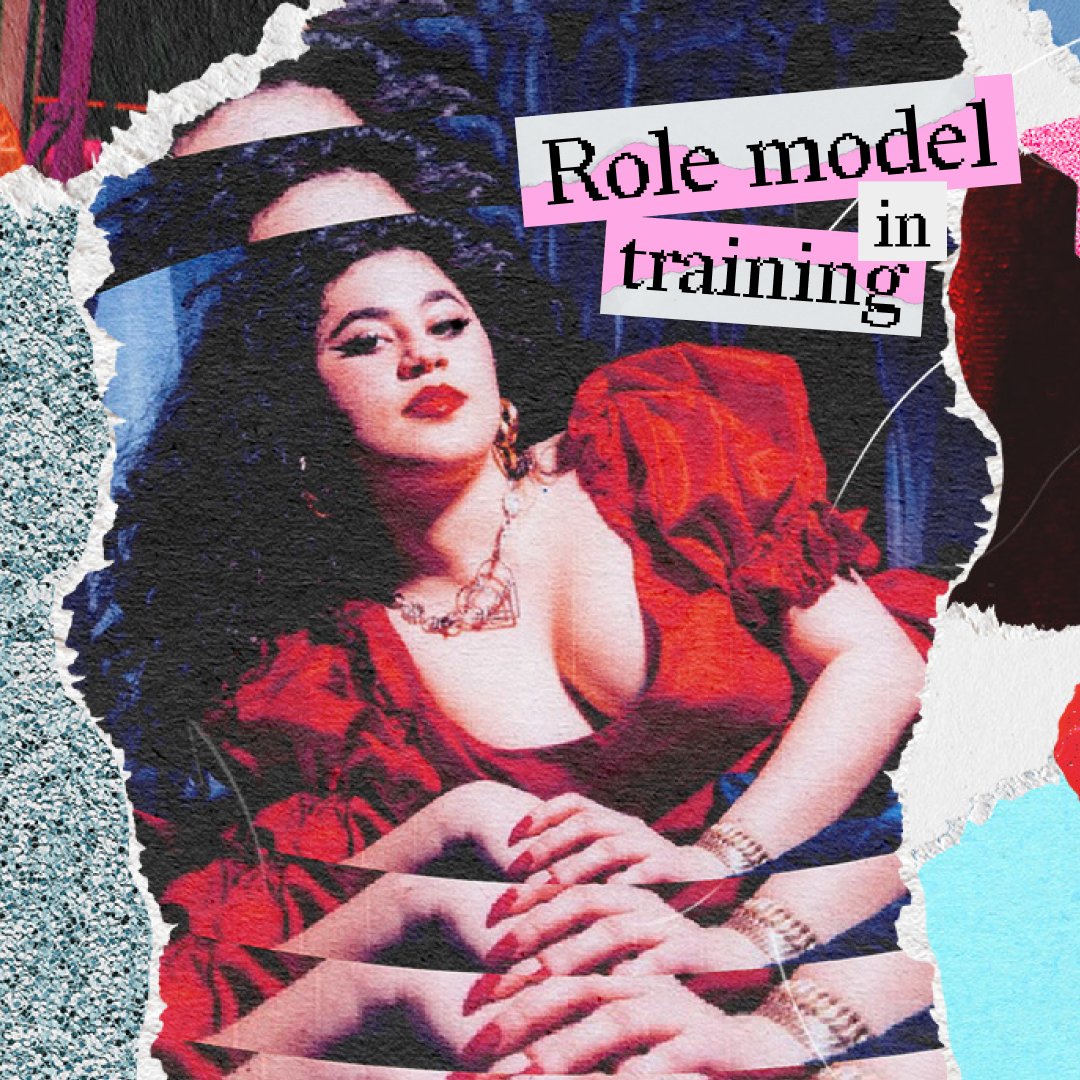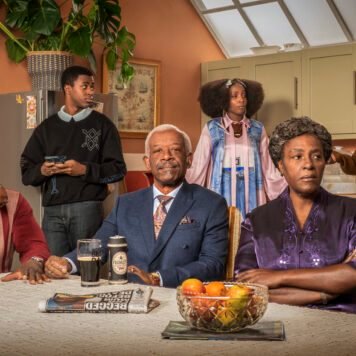In this instalment of Role Model in Training, Faye unpacks how to kindly deal with codependency.
Dear Faye,
At the beginning of my relationship, my other half and I did pretty much everything together – you know, that inseparable, can’t keep your hands off each other sorta thing-and I loved that. But now we’ve been going strong for a year, she still wants to do everything together, I feel like she’s relying on me for 100 percent of her happiness. My friends love her but are frustrated that she is always by my side at social events. I love her but I resent her codependence. How do I speak to her without making her feel shitty? When I play out the scenario in my head, she either feels abandoned, or she gets on the defence and breaks up with me.
Independent Lover
Hi Independent Lover, thanks for writing in with this and letting me play love doctor for a second.
I’ve been in your shoes before and I don’t envy you now. This is really the kind of problem that keeps you up at night. It’s not like you want to be upset at your S/o for her desire to be with you! It’s just that… you feel suffocated in the current dynamic. And nothing can grow in those conditions. I’ve been on both sides of this before, so hopefully I’ll be able to offer up some valuable information.
The first thing I’m noticing here is how you said in the beginning of the relationship, you did everything together.
Have you heard of that phrase ‘New Relationship Energy’? It’s a phrase popular with the polyamorous community, and it’s similar to the Honeymoon Phase, but more specific. NRE speaks to that all-consuming, giddy, borderline obsessive mindset we enter as we start a relationship. It’s not that the person is a novelty, but they’re new and shiny. You want to find out everything about them, take them everywhere, talk about them to everyone, so on, so forth. It’s normal! It’s fun! It’s addictive.
Logically, we all know that NRE can’t last forever. It has to subside so an actual relationship can form, and you can develop a calmer, more sustainable form of intimacy. For many of us though, no amount of logic makes phasing out of that NRE any easier. It feels like a loss. It can even feel like a rejection. It feels like something we need to get back.
In all my unhealthy relationships, codependency started to rear its ugly head right around that checkpoint where the giddiness started to fade into something tamer. It sounds like this might be the case for you, too.
From what I’m hearing, since you two have been together for a year, you feel comfortable growing as two separate units, but that concept makes her anxious at best and angry at worst. It’s hard to be on the receiving end of someone’s anxieties, especially when that person is someone you care about.
You’re going to need to enter the conversation with a lot of grace and patience, if you want the relationship to grow. Don’t take this the wrong way, but from the limited information I have, I get the feeling she’s a little insecure. I don’t mean that pejoratively. But for every person feeling irritated by their partner not giving them space, there’s another person desperately trying to maintain a feeling of closeness, and taking it very personally when they feel their partner doesn’t want the same.
I’ve been saying this for years offline. I truly think there are two camps of people in the world. There are the ones who get in a relationship so they can have someone to grow with, who find it natural to act as a unit and are disturbed or scared at the idea of growing separately, together; there are the ones who see a relationship as something beneficial, but don’t expect their partner to be the sole source of their happiness. When these two people get together – which is very often – trouble looms. The good news? It’s not insurmountable.
Whenever I have any relationship questions about jealousy, insecurity, codependency, or really just maintaining healthy communication practices, I turn to my nearest non-monogamous or polyamorous friend. Even if you’re not practicing ethical non-monogamy, there’s a lot to learn from the intentional way the community goes about mitigating codependency.
When I reached out to Michelle Hy, aka @polyamorouswhileasian, she had some tips I think would help you. Over email, she noted: Almost all conversations about boundaries work best when they focus on the speaker’s own behaviours and feelings as opposed to a projection or a series of demands on the other person. “Hey, I love spending quality time with you, but I’ve been realising I need more time to myself too. Can we chat about how we can work together to get more out of our quality time, while doing more things on our own?” Remember, especially when difficult conversations like this arise, you’re not enemies! You’re teammates on the same side and the goal should be how you can tackle this together to strengthen the relationship.
I’ve never really managed to break off a codependent relationship without anger and resentment, and I’m hoping that with this advice, I can help you avoid that fate. This might be hard, especially since you (and your friends!) are frustrated, but I think some solo reflection would help the conversation go smoothly. It would be nice if you could try to pinpoint any specific moments where you two stopped being as inseparable – not because it carries any specific moral value, but because it’s valuable information, point blank.
Even if you two gradually transitioned out of the honeymoon phase, were there any moments of resistance? Have abandonment issues come up before? Did you two have any discussions or conflicts about spending time together as you got more serious? Were there moments, explicit or otherwise, where you tried to take space and she pushed back?
There’s a good chance it didn’t appear as a direct conflict, but I’m sure there were moments that got you to this place of tension you’re in today. Try to look back at your relationship as objectively as you can. If you can enter the conversation with her after you’ve reflected, it will make the conversation go so much smoother. You’ll understand the problem better, and it will be easier to translate it to her in a way that will give you every opportunity possible to salvage things.
My final thing to say about this is about your fear that she’ll react poorly. In all honesty, even with all this reflection, there’s a chance she could enter the conversation with her abandonment issues, which, like any good insecurity, tend to buffer out any logical reason why the codependency is unhealthy.
She might lash out, and she may accuse you of caring less. Remember where she’s coming from, but remind her you’re doing this because you care. Be gentle! At the end of the day, if she’s more attached to the idea of you two relying on each other 100% than the idea of you two compromising, there’s a chance it could end badly. But if it does, it’s not because you communicated the problem to her. It was always latent, and by addressing it calmly and empathetically, you’re doing everything you can.
Best of wishes from your very independent Role Model In Training,
Faye <3
Got a question regarding love, sex, or style? A situation you can’t stop obsessing over? A pattern you want to break? Submit to Role Model in Training here and Faye may answer yours next.
What can you do?
- “Who we are is not defined by what we give other people:” Cynthia Ong’s TED talk, Redefining how we love, details the process of learning how to love others while upholding your boundaries and maintaining self preservation. It’s personal, empathetic, and relatable. Since there are so few resources for people on the receiving end of codependency, this is a great place to start.
- Data-minded? Editor Faith Hill wrote a very comprehensive piece in The Atlantic, “Don’t Let Love Take Over Your Life” about the rising trend of couples spending more time together than apart. There’s plenty of research and input from scholars about “preserving your identity and autonomy while nurturing a caring partnership.” (Psstttt: there are many Google Chrome extensions for bypassing paywalls, just saying.)
- No matter how monogamous you are, if you’re looking for serviceable advice and exercises to explore attachment styles, Jessica Fern’s Polysecure and Polysecure Workbook may be for you. Both are beloved for their offerings on secure relationship styles.
- Read Faye’s last advice column, all about revenge HERE
- Submit a question to Faye HERE









